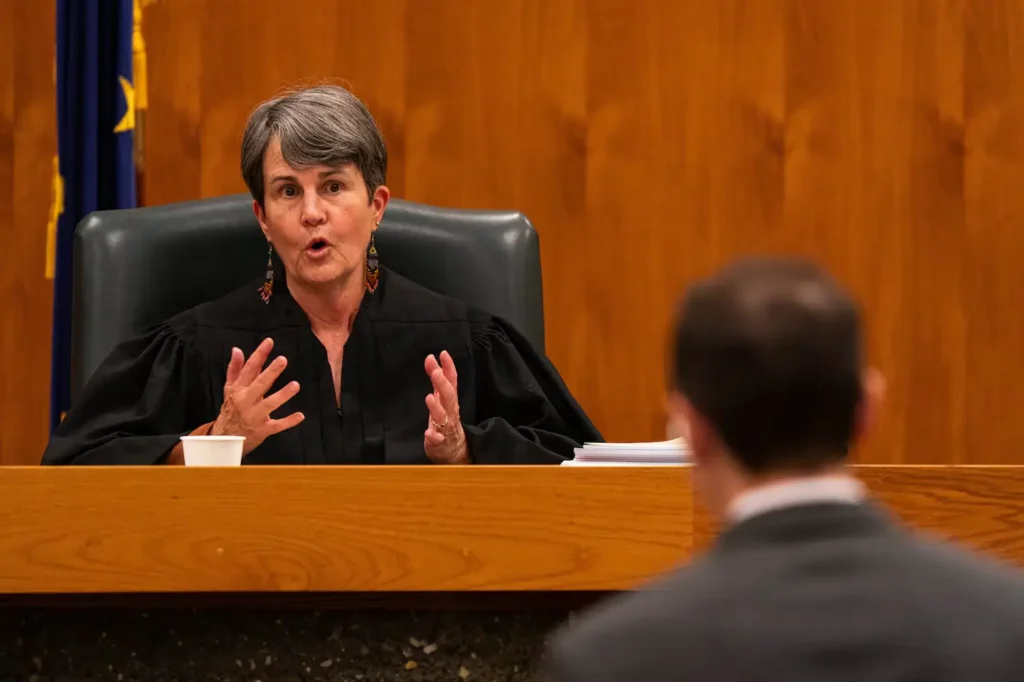Chief Justice Susan Carney acknowledged the Alaska Supreme Court trial delays in her address to the Alaska Legislature, emphasizing ongoing efforts to improve the system. Speaking for the first time since an investigative report exposed a severe case backlog, Carney admitted that felony trials now take nearly three times longer than a decade ago.
One alarming case involved a sexual assault witnessed by police in Anchorage that took seven years to reach trial. Carney called such cases extraordinary but insisted the judiciary must improve efficiency to prevent similar delays.
Carney reassured lawmakers that the courts are actively working to reduce case backlogs and accelerate trial timelines. She noted that misdemeanor cases are typically resolved in six months. However, felony cases require more time, with lower-level felonies taking a median of six months and the most serious crimes, such as murder, averaging three years.
The National Center for State Courts recommends resolving 98% of felony cases within a year, highlighting Alaska’s significant backlog. Carney pointed out that improvements are underway, with the court closing more cases than it opened last year.
As of January 2024, Anchorage District Court had over 1500 criminal cases pending for over a year. She reported a one-third reduction in open instances compared to the previous year, marking the lowest backlog since 2018.
To tackle this crisis, the judiciary has approved overtime and recruited retired judges to assist with caseloads. Additionally, the court’s annual conference dedicated over a third of its agenda to expediting trials.
Beyond criminal cases, Alaska’s courts are introducing digital tools to streamline civil proceedings. Carney announced an AI chatbot to assist families in navigating estate settlements. The judiciary also expands partnerships with tribal courts to divert cases from the traditional system.
Due to the Matanuska-Susitna Borough’s rising population, Carney urged lawmakers to fund an expanded courthouse in Palmer. The court, led by its first female-majority bench, remains committed to efficiency.
Senator Matt Claman expressed cautious optimism, stating lawmakers will seek further updates. Alaska Supreme Court trial delays remain a top priority, with legislative oversight ensuring continued reforms.
This news article was originally published by Alaska Beacon.









